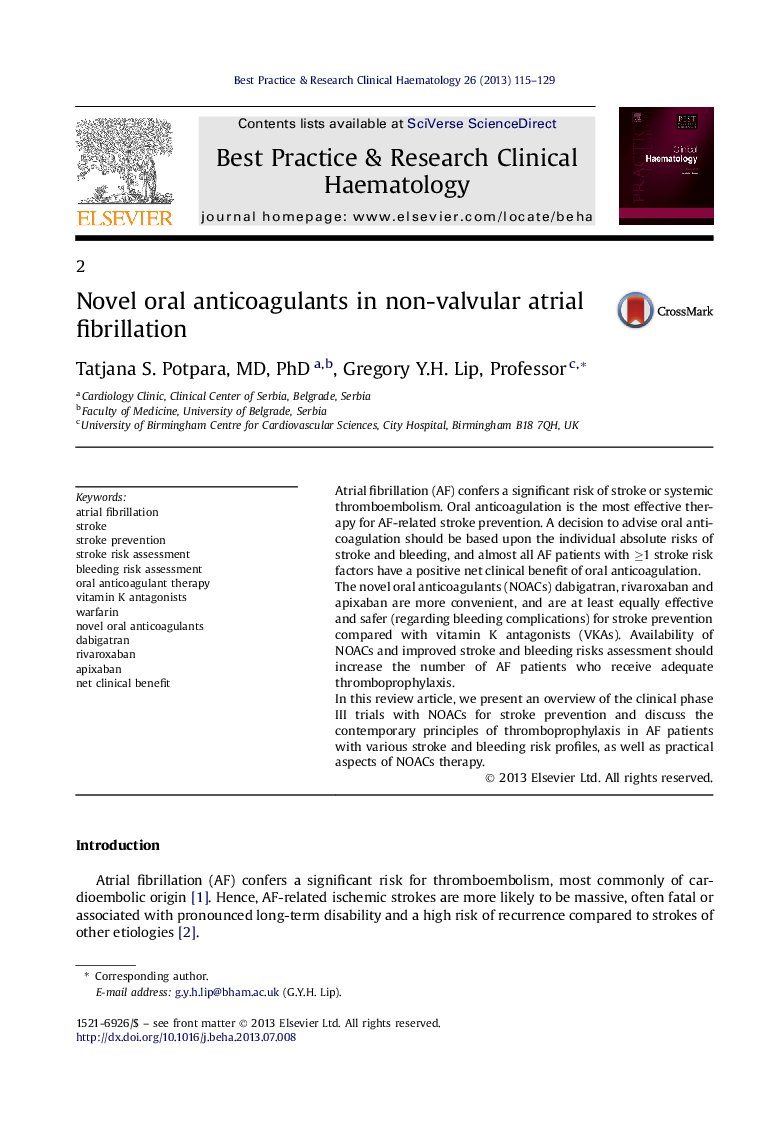| Article ID | Journal | Published Year | Pages | File Type |
|---|---|---|---|---|
| 2100692 | Best Practice & Research Clinical Haematology | 2013 | 15 Pages |
Atrial fibrillation (AF) confers a significant risk of stroke or systemic thromboembolism. Oral anticoagulation is the most effective therapy for AF-related stroke prevention. A decision to advise oral anticoagulation should be based upon the individual absolute risks of stroke and bleeding, and almost all AF patients with ≥1 stroke risk factors have a positive net clinical benefit of oral anticoagulation.The novel oral anticoagulants (NOACs) dabigatran, rivaroxaban and apixaban are more convenient, and are at least equally effective and safer (regarding bleeding complications) for stroke prevention compared with vitamin K antagonists (VKAs). Availability of NOACs and improved stroke and bleeding risks assessment should increase the number of AF patients who receive adequate thromboprophylaxis.In this review article, we present an overview of the clinical phase III trials with NOACs for stroke prevention and discuss the contemporary principles of thromboprophylaxis in AF patients with various stroke and bleeding risk profiles, as well as practical aspects of NOACs therapy.
